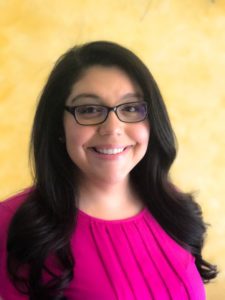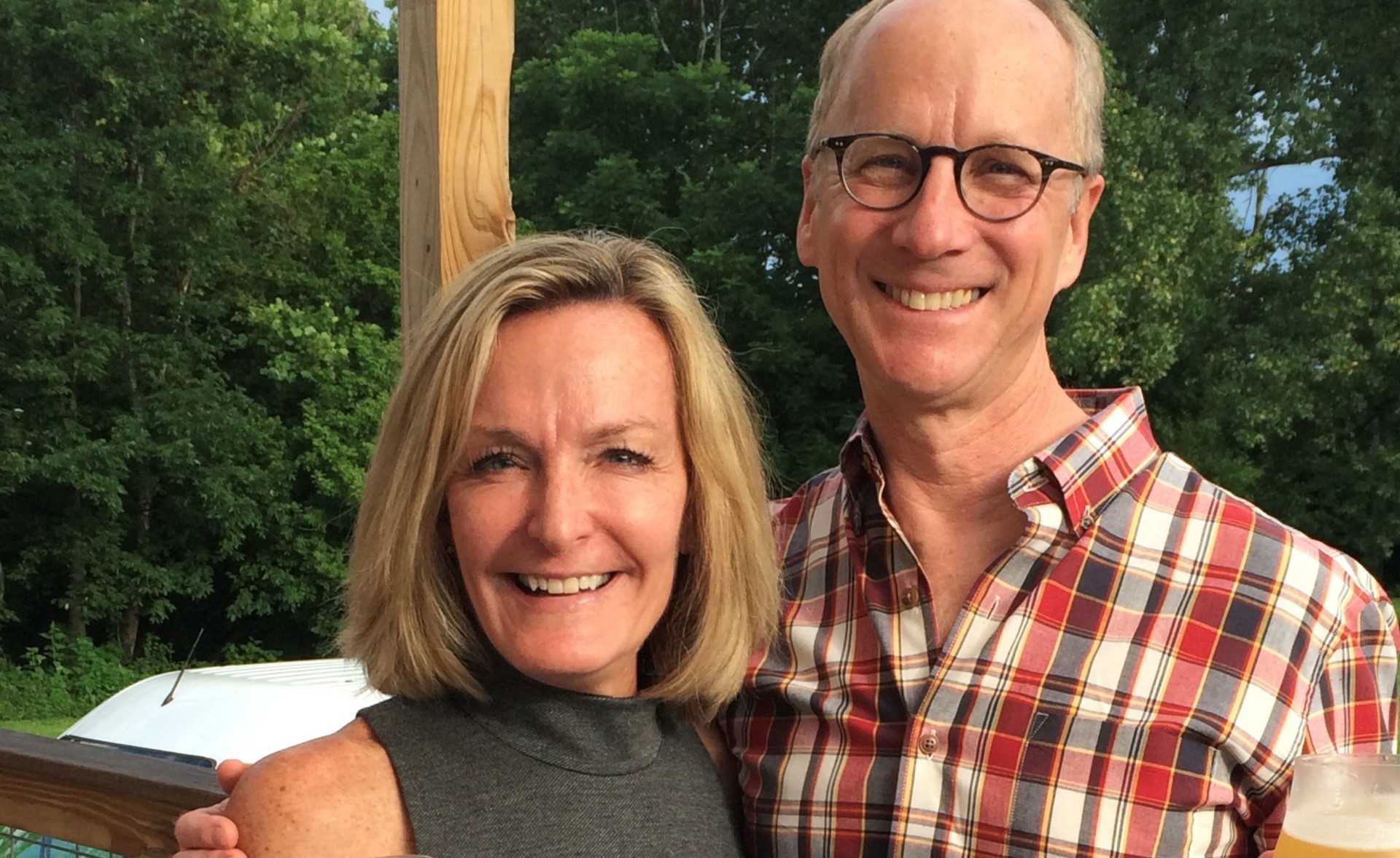First Generation Award
Breaking barriers and succeeding story by Bruce Hallmark published March 29, 2021At Colorado State University, the core tenets of our land-grant mission are realized in myriad ways, but none embody the heart of access more fully than first-generation students.
Since 2007, about 25% of enrolled freshmen have been first-generation students – neither they nor their parents have earned a bachelor’s degree. For other students who come from families where a parent or numerous family members have degrees, it can be difficult to imagine the barriers and challenges that exists for those who don’t.
Since 1984, the First Generation Award scholarship program at CSU has been responsible for helping thousands of first-generation students graduate. The combination of financial aid and structured student support have been key to its success.
The road less traveled

“Family support looks different when you’re a first-generation student,” said Heidi Stuckert (B.A. ’08 & M.S. ’ 17), assistant director for Student Success in the Office of Financial Aid, who was a First Generation Award scholarship recipient herself. “My mom was my biggest supporter for me going to college, but I remember doing my FAFSA (Free Application for Federal Student Aid) on my own. My mom never called the Financial Aid office. That’s the reality of coming from a first-generation family – your parents just didn’t know how to navigate the system or what to ask.”
“When you’re a first-generation student,” Stuckert added, “and when you’re a person of color – when you have some of these more minoritized identities – going to college is more than just about you. I felt like I had to shine for the other people who were like me, the ones who came before and the ones who will come after. When I graduated with my degree, my family graduated with me.”
In 2016, first-generation students received some much-appreciated recognition. Gov. John Hickenlooper declared March 1 as “Colorado State University First Generation Awards Day,” to help bring some awareness to these students and the value that education brings to their lives.
The importance of supporting first-generation students is the reason Deb Stencel (B.S. ’78) and Patrick Phillips (B.S. ’79) established in 2018 the Phillips-Stencel First Generation Award Scholarship, which provides qualified students a scholarship matched dollar for dollar by the Colorado Opportunity Scholarship Initiative.
Stencel was a first-generation student, so her connection is personal. “I know from firsthand experience how important the opportunity is to be able to attend a major university. It sets you up and your family and future generations for much greater opportunity.”

Deb Stencel and Patrick Phillips
“In the late ’70s when I attended CSU,” she continued, “I wasn’t the beneficiary of the first-generation community that is now there. Students today have peers and other guidance, which is really helpful. The First Generation Award Program allows students to focus on school and not have the distraction of patching together various funding sources to remain enrolled, which just adds stress and takes time away from learning.”
Phillips concurred.
“We’ve been impressed with the level of support first-generation students are getting from the University; the love the first-generation team has for the students is really clear,” he said. “As donors, it’s one thing to give to a good cause and hope the support will benefit the recipient. At the University, it’s really encouraging to see the infrastructure in place to ensure the students are getting the support they need.”
To be or not to be virtual
The First Generation Award Celebration is typically held in late February or early March on campus and is attended by about 250 people. The event, which was took place in 2020 prior to the University’s move to remote operations because of the COVID-19 pandemic, recognizes and celebrates current and graduating award recipients (who receive a $4,000 per year scholarship for up to five years), as well as three seniors with cumulative GPAs of 3.0 or higher who have been named Jackson Distinguished Scholars, an honor that comes with an additional scholarship.
Due to the pandemic, this year’s in-person event is not being held. “Unlike other events, we chose not to host a large virtual celebration this year,” said Marilyn Butcher, associate director of development for enrollment, academic and student affairs.
“Students and University faculty and staff have spent most of the past year on Zoom or Microsoft Teams calls. Adding another long virtual event to everyone’s calendars – especially one that couldn’t come close to capturing the spirit of in-person celebration – just felt like we were shortchanging everyone involved, the students in particular,” Butcher explained. “Instead, the Community for Excellence hosted an informal, virtual get-together for students and we opted to recognize donors, faculty, staff, and alumni through personalized communications and other personal touches throughout the spring.”
The 2021 Jackson Distinguished Scholars
In lieu of a celebration, here is a brief overview of the three Jackson Distinguished Scholars for 2021:

Kausila Niroula
Major: Biology, Minor: Chemistry
Expected graduation: May 2021
Kausila was born in Nepal and immigrated to the United States with her family in 2010. They settled in Denver, where some of their extended family lived, but eventually moved to the neighboring city of Aurora.
A high school counselor encouraged her to take the ACT exam and go to college.
“I had no idea what college was, none of my family members knew,” she said. “No one in my family had ever gone to college.”
Although she didn’t know how she was going to pay for it, she applied to several universities and was accepted to CSU before she learned about the First Generation Award scholarship.
“People from CSU would reach out to me and really made me feel like they wanted me there,” Niroula said.
So, she decided to attend CSU, but still needed to tell her parents. They, of course, had many questions about where she would live, have meals and do her laundry; how far away was she going and would she get back home.
Niroula is the youngest of four children. “When I came to CSU, I told my older brother and sisters, ‘If I’m going to do this and go away and struggle, then you can do it too.’”
Her older brother started attending Aurora Community College and one of her two sisters recently earned her bachelor’s degree in accounting from Metro State University.
“My getting a four-year degree is starting a legacy for my family, especially here in America, because my parents can speak very little English and they work minimum wage jobs. I feel like my siblings and me are paving the path for the next generation to come,” she said.
“The support I got from the First Generation Award program, not only financially but through my advisors, really got me through,” Niroula said. “I’m so thankful for the First Generation Award scholarship Program and all the people who are involved – the donors, the advisors, the staff. And I am thankful to my family for allowing me to be here and supporting me so much that I could get through these four years and continue on with my education.”
She would like to stay at CSU and pursue a master’s degree in biomedical science on her way to becoming a medical doctor and working in underdeveloped countries.
“First-generation families and parents do not understand the concept of college and how hard it is,” Niroula said. “It’s good to hear someone say, ‘I’m proud of you.’ I feel like ‘Yes! I’m doing something right and should be here.’”

Barnabas Tsige
Major: Political Science, Minor: Legal Studies
Expected graduation: Spring 2021
Born in Italy, Tsige immigrated with his parents and a sibling to the U.S. when he was 2 years old. During the next 12 years, the family moved many times from state to state and within states, requiring Tsige to change schools often.
In the midst of that, his mother began struggling with mental health issues and his parents divorced, which resulted in Tsige and his now three siblings going in and out of the foster care system. At one time, he was identified as an “unaccompanied homeless youth.” At various times, he thought he would have to drop out of high school, but some family friends in Longmont took him in and allowed him to finish high school.
A guidance counselor helped Tsige explore his higher education opportunities as did the family he was living with, who brought him to CSU for a tour.
“I remember visiting campus and going into one of the SDPS offices (Student Diversity Programs and Services) for the Black/African American Cultural Center and feeling like I could see my identity here,” Tsige said. “And even the person I was talking with in the office was from one of the small towns in Minnesota I had lived in for a short time in foster care. The possibility of me breaking out of some really terrible circumstances seemed possible, because CSU genuinely supports its students. I was really lucky to be offered admission, to be offered grants, and then to have gotten the First Generation Award.”
There was other support available as well, Tsige said.
“The Fostering Success Program and Key Communities were a big contributor to my success,” he explained “The Community for Excellence and their related programs work well together in making sure I didn’t feel overwhelmed, but I felt connected to the institution, I felt connected to mentors and other students. I’m really grateful for it, and if I didn’t have that I would have felt very isolated, and maybe like I’m not meant to be in a place like this.”
He is currently interning with a local nonprofit legal firm, which he hopes to work at full-time while taking a gap year before pursuing a law degree. Tsige would like to become an immigration lawyer after navigating the legal system with his mother and later volunteering at a refugee center where he saw long lines of people in need of legal aid.
“I want to support that community considering I come from that community, and I’ve seen so many instances where these people really need legal resources and there is such a strain on them, especially for those who can’t afford it,” He said.
Tsige is also the first person in his family to become a naturalized citizen. “It was an eye-opening experience and made me realize there are some inequities in the system, and I want to support others in their journeys who also call this country home.”
Speaking of his early childhood and teens years, Tsige said, “I was aware it was difficult but it was all I knew. Looking back now, it feels like a different reality. It has brought me to where I am today, and despite the other impacts it had, it also led me here and I am grateful for that.”

Julie Zheng
Major: Psychology
Expected graduation: Fall 2021
Zheng is a daughter of Chinese immigrants who came to the U.S. three decades ago in search of a better life. She was born in Denver, Colorado, and grew up helping her parents run a Chinese restaurant. “I’ve worked since I was able to work,” she said.
She is the youngest of three children, all of whom are working toward, or have achieved, four-year degrees.
“That was an opportunity my parents never got, so they wanted to ensure it happened for us,” Zheng said. “Growing up, we were all expected to go to college. All of us knew what higher education meant, but we each had to figure what applying to college entailed.”
“I feel CSU really cares about first-generation students,” she said. “I don’t think that’s something that a lot of other schools can say. The support for first-generation students is amazing. The first-generation community, the Community for Excellence, and other resources are a constant reminder that I belong here.”
Last year she joined the Delta Xi Nu Multicultural Sorority, Inc., which has helped her grow personally and professionally. After graduation, she is planning to apply her degree in a business field by working at a friend’s marketing startup.
“Being a first-generation student means making the most of the opportunities given to me in this experience,” Zheng said. “College has opened a lot of doors for me, and I know it’s going to open up more doors. Because my parents didn’t have this opportunity, it’s really important for me to make the most of it educationally and to do what I can to impact my community.”